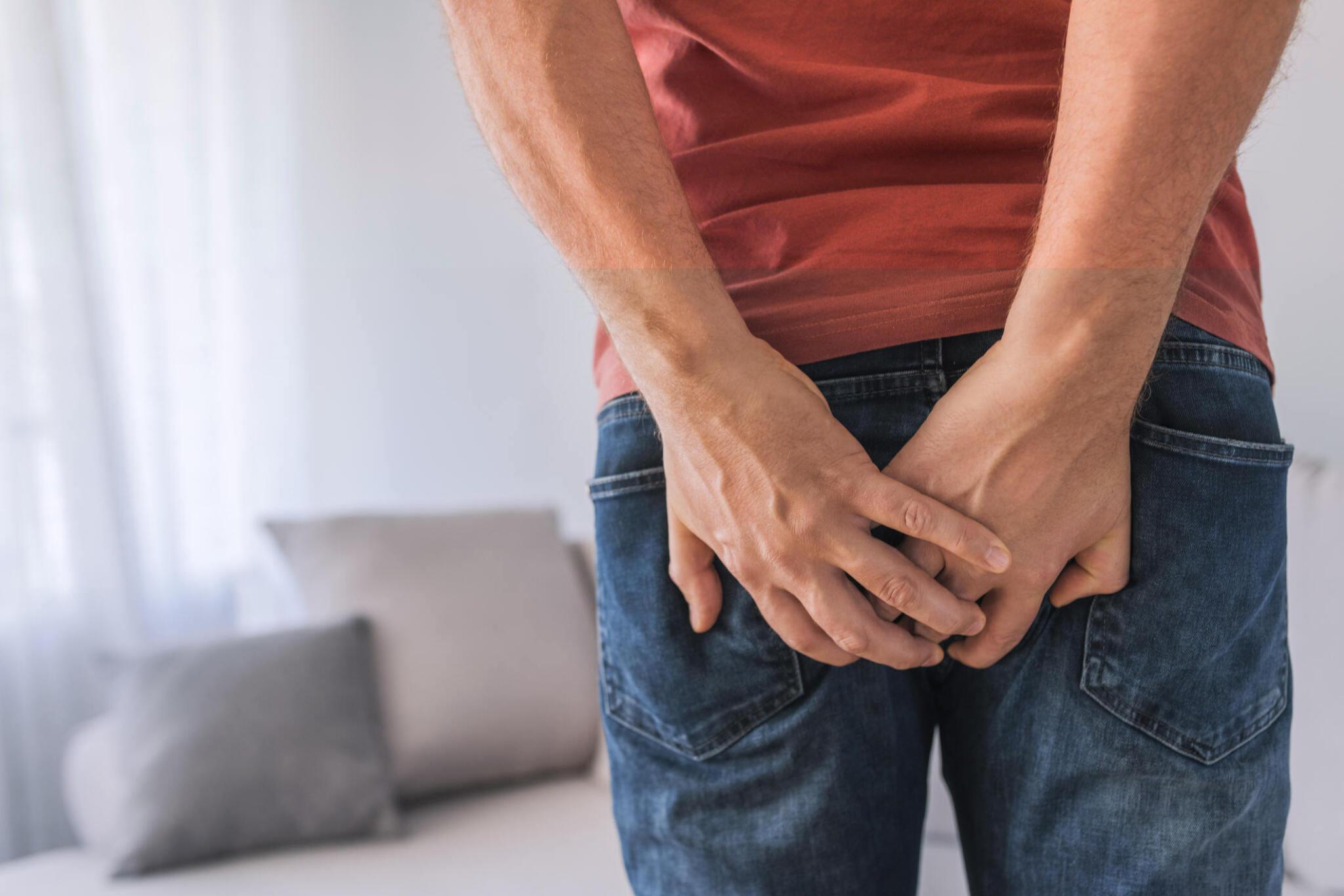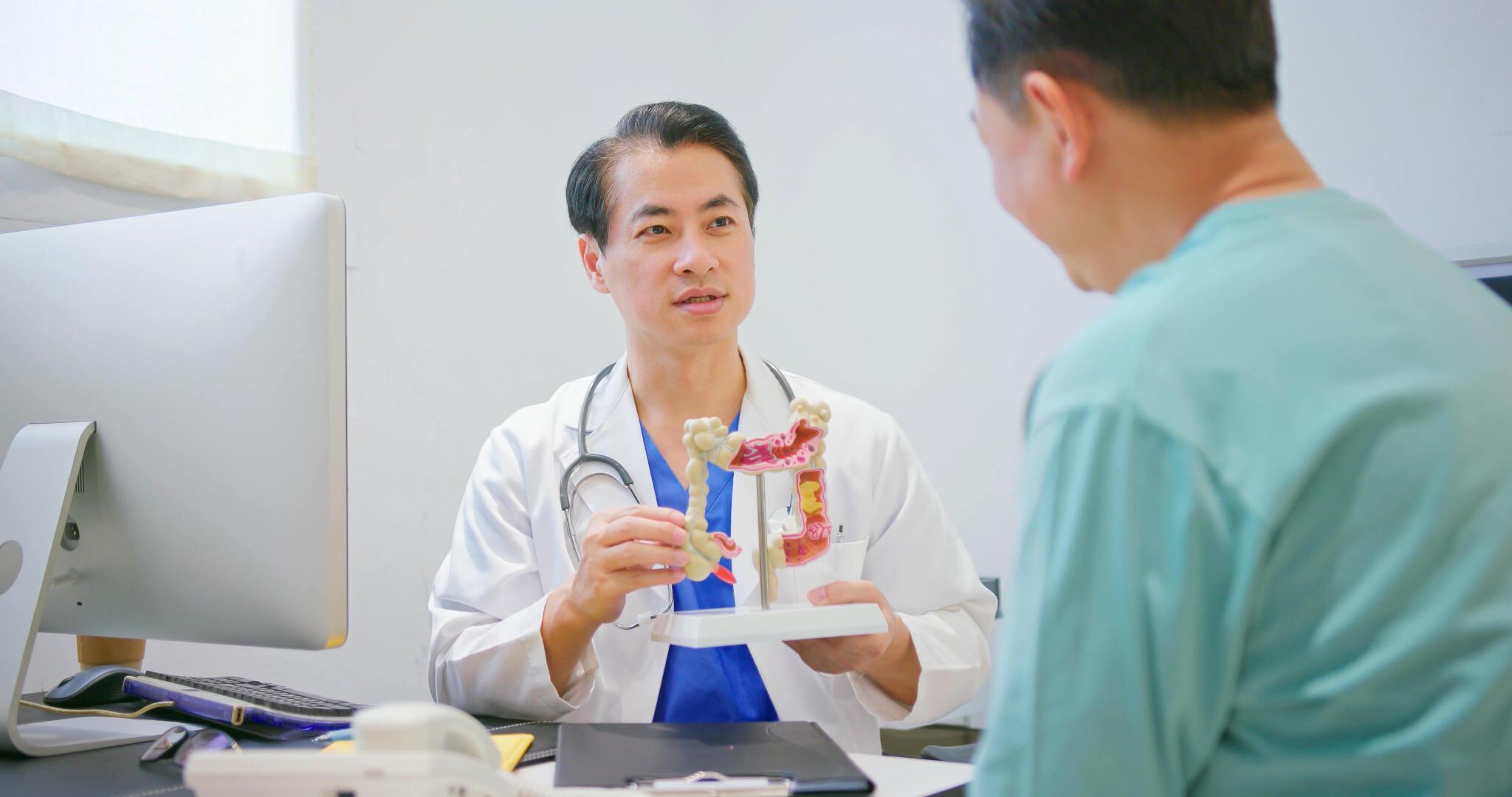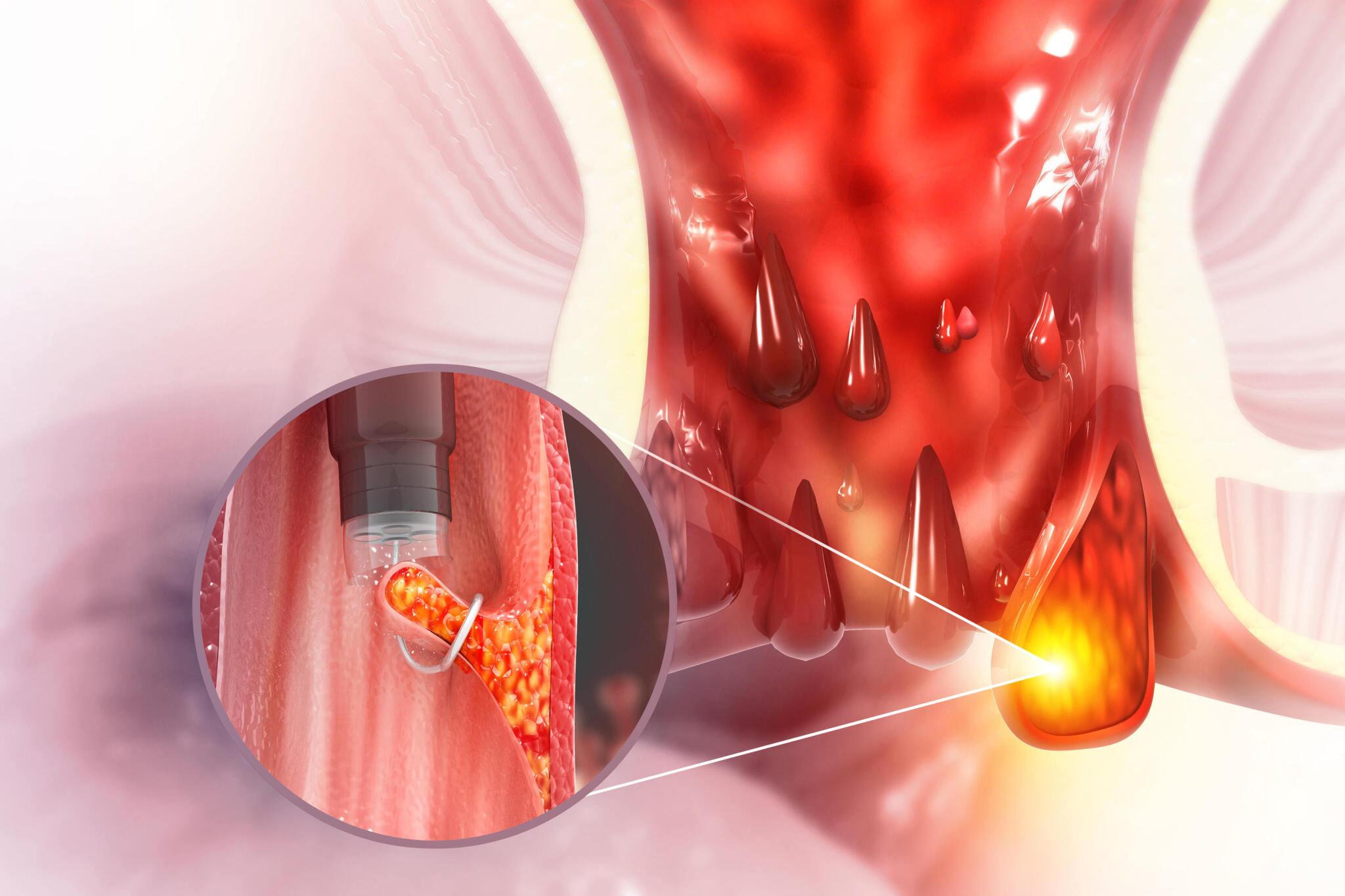
In today’s fast-paced world, health issues can often catch us by surprise. Hemorrhoids, though not life-threatening, can be highly uncomfortable and painful. Knowing where to find urgent care for hemorrhoids can make all the difference when they strike. Let’s discover the ultimate roadmap to finding top-notch urgent care solutions for hemorrhoid treatment in Fairfield, CT.
Hemorrhoids, commonly known as piles, are a medical condition characterized by the swelling of blood vessels in the area around the rectum or anus. These swollen blood vessels can manifest internally or externally, leading to uncomfortable symptoms such as pain, bleeding, and general discomfort. To effectively address and manage this condition, it’s essential to comprehend its fundamental nature and its potential impact on one’s quality of life.
One key factor in the emergence of hemorrhoids is a genetic predisposition. If you have a family history of hemorrhoids, you may be at a higher risk of developing them. Genetic factors can influence the strength and integrity of the blood vessel walls in the rectal and anal region, making some individuals more susceptible to hemorrhoidal issues.
Certain lifestyle choices can significantly increase the risk of hemorrhoids. Leading a sedentary lifestyle with prolonged periods of sitting or standing can exert excessive pressure on the blood vessels in the pelvic area, potentially leading to their enlargement. Additionally, a diet lacking in dietary fiber can result in constipation, further aggravating the development of hemorrhoids.
Pregnant women are prone to developing hemorrhoids due to increased pressure on the pelvic blood vessels caused by the growing uterus. Hormonal changes during pregnancy can also weaken blood vessel walls, making them more susceptible to swelling and inflammation.
Excess body weight can be a contributing factor. Obesity places added strain on the pelvic region, increasing the pressure on blood vessels and potentially leading to hemorrhoid formation.
Conditions that disrupt regular bowel movements, such as chronic constipation or diarrhea, can significantly contribute to developing hemorrhoids. Straining during bowel movements and frequent irritation of the rectal area can lead to the swelling of blood vessels.
As individuals age, the tissues in the rectal and anal regions naturally weaken. This weakening can make it easier for blood vessels to become inflamed and develop into hemorrhoids.
Engaging in heavy lifting or straining activities can increase the pressure in the pelvic area, potentially leading to hemorrhoid formation.
The most common symptom of hemorrhoids is a sensation of discomfort or irritation in the rectal or anal region. This discomfort can range from a mild, nagging sensation to more pronounced pain.
Many individuals with hemorrhoids experience itching around the anal area. This persistent itching can be bothersome and is often a result of the inflamed blood vessels causing irritation.
Hemorrhoids may lead to bright red blood on toilet paper or in the toilet bowl after a bowel movement. This bleeding occurs because the fragile blood vessels within the hemorrhoid become irritated and rupture.
Hemorrhoids, known as prolapse, can sometimes protrude outside the anus. This can cause a noticeable swelling or lump in the anal region, which may be painful or uncomfortable.
Passing stool can be painful for individuals with hemorrhoids, particularly when the swollen blood vessels are aggravated. This can result in sharp or throbbing pain during and after a bowel movement.
Some individuals may notice mucus discharge from the rectum, a symptom of hemorrhoids. A feeling of incomplete bowel evacuation may accompany this discharge.
In some cases, hemorrhoids can lead to sporadic rectal bleeding between bowel movements. This bleeding is often minor but should not be ignored.
Hemorrhoids can develop into hard, painful lumps called thrombosed hemorrhoids when blood clots form within them. These can cause severe discomfort and require immediate medical attention.

Hemorrhoids, those swollen blood vessels in the rectal or anal area, can be a source of discomfort and pain. Fortunately, various treatment options are available to help manage and alleviate hemorrhoid symptoms. Here is an overview of some of the most common treatment approaches:
Over-the-counter (OTC) or prescription creams and ointments containing ingredients like hydrocortisone or witch hazel can relieve itching and inflammation. These topical treatments can be applied directly to the affected area.
A sitz bath involves sitting in a few inches of warm water for 15-20 minutes daily. This can help soothe the discomfort associated with hemorrhoids and promote healing.
Rectal suppositories containing medications or herbal remedies can be used to alleviate symptoms and reduce inflammation. These are inserted into the rectum for localized relief.
In this procedure, a doctor places a small rubber band around the base of an internal hemorrhoid, cutting off its blood supply. This causes the hemorrhoid to shrink and fall off within a few days.
Infrared coagulation is a non-surgical procedure that uses heat to coagulate the blood vessels feeding the hemorrhoid, causing it to shrink and recede.
A chemical solution is injected into the hemorrhoid, causing it to shrink. This procedure is primarily used for smaller internal hemorrhoids.
For severe or recurring hemorrhoids, surgical removal may be necessary. A hemorrhoidectomy involves completely removing the hemorrhoid tissue and is typically performed under anesthesia.
This surgical procedure is used for prolapsed hemorrhoids. It involves stapling the hemorrhoid to the rectal wall to reduce blood flow and promote shrinkage.
Laser therapy can be used to remove or shrink hemorrhoids. It’s less invasive than traditional surgery and may result in faster recovery.
Cryotherapy involves freezing the hemorrhoid using liquid nitrogen, causing it to wither and fall off.
In some cases, prescription medications, such as stool softeners or anti-inflammatory drugs, may be recommended to alleviate symptoms and reduce discomfort.
Urgent care centers significantly manage and treat hemorrhoids, offering a convenient and accessible option for individuals experiencing hemorrhoidal symptoms. Here’s a closer look at the role of urgent care in hemorrhoid treatment:
Urgent care centers can provide prompt evaluation and diagnosis of hemorrhoids. If you’re experiencing symptoms such as rectal bleeding, severe pain, or discomfort, visiting an urgent care facility allows healthcare professionals to assess your condition quickly and accurately.
Urgent care can provide immediate relief for individuals with acute hemorrhoidal symptoms. Urgent care providers can prescribe medications to alleviate pain, inflammation, and itching. They may recommend over-the-counter creams or ointments or provide prescription-strength options as needed.
In cases where hemorrhoids have led to complications like thrombosis (blood clots within hemorrhoids) or significant bleeding, urgent care centers are equipped to address these issues promptly. They can perform procedures like incision and drainage for thrombosed hemorrhoids or provide interventions to stop severe bleeding.
Urgent care providers can offer guidance on managing hemorrhoidal symptoms, including recommendations for sitz baths, dietary changes, and lifestyle modifications to reduce discomfort and promote healing.
Urgent care centers can refer patients to colorectal specialists or surgeons for further evaluation and treatment planning in cases of severe or recurring hemorrhoids that require surgical intervention.
Urgent care facilities like Docs Primary Care – Fairfield typically offer extended hours and same-day appointments, making them a convenient option for individuals with busy schedules. They are also more accessible than scheduling appointments with primary care physicians, ensuring timely evaluation and treatment.
Urgent care providers can educate patients about hemorrhoids, their causes, and preventive measures. This may include discussing dietary changes, proper hygiene, and strategies to avoid constipation or straining during bowel movements.
Urgent care can provide peace of mind through timely evaluation and diagnosis for individuals unsure if their symptoms are due to hemorrhoids or another medical condition.

Knowing when to seek care at an urgent care facility versus when to go to the emergency room for hemorrhoids is crucial for timely and appropriate treatment. Here’s a guideline to help you make that decision:
If you’re experiencing mild to moderate symptoms like rectal discomfort, itching, minor bleeding, or a small lump, a hemorrhoid urgent care in Fairfield, CT, visit is appropriate. These symptoms can often be managed effectively in this setting.
If you have ongoing pain that is uncomfortable but not excruciating, hemorrhoid urgent care can provide relief through medications and treatments like topical creams or suppositories.
In thrombosed hemorrhoids (hemorrhoids with a blood clot), urgent care in Fairfield, CT, can often perform procedures to alleviate the pain, such as incision and drainage.
If you’ve been previously diagnosed with hemorrhoids and require prescription medications or refills, urgent care can help with this.
Urgent care can assess the situation and recommend appropriate treatment or follow-up care if you notice minor rectal bleeding during or between bowel movements.
If you are experiencing excruciating pain that is not manageable with over-the-counter pain relievers or if other concerning symptoms accompany the pain, consider going to the emergency room. Severe pain may be a sign of complications.
If you are experiencing heavy or persistent rectal bleeding that doesn’t stop, it is an emergency that requires immediate medical attention. This could indicate a more severe issue.
Symptoms such as fever, chills, and increased pain around the hemorrhoidal area may suggest an infection, which should be treated promptly in the emergency room.
If you have a prolapsed hemorrhoid (pushed out of the anus) causing severe pain or discomfort that cannot be managed, the emergency room is the appropriate place for evaluation and potential treatment.
In rare cases, hemorrhoid complications can cause severe health issues. If you experience a loss of consciousness, severe weakness, or other severe symptoms, seek emergency care immediately.
Selecting the right urgent care center for hemorrhoid treatment is essential to ensure you receive prompt and effective care. Here are several factors to consider when making your choice:
Proximity to your home or workplace is crucial when selecting an urgent care center. You want a facility that is easy to reach, especially when dealing with painful or uncomfortable hemorrhoid symptoms.
Check the urgent care’s hours of operation, including evenings and weekends. Opt for a facility with extended hours to accommodate your schedule, as hemorrhoidal discomfort can strike anytime.
Some urgent care centers may specialize in certain medical areas. While most urgent care in Fairfield, CT, can treat hemorrhoids, it’s beneficial to inquire if they have experience with this condition and offer specialized care.
Research the qualifications and experience of the healthcare providers and staff at the urgent care in Fairfield, CT. Knowledgeable and compassionate professionals can make your visit more comfortable and effective.
Online reviews and recommendations from friends or family can provide valuable insights into the quality of care and patient experiences at a specific urgent care center.
Verify if the urgent care accepts your health insurance. This can save you significant out-of-pocket expenses. Additionally, inquire about copays and any potential billing concerns.
Confirm that the urgent care offers the services you may need for hemorrhoid treatment, such as diagnostic procedures, prescription medications, and minor procedures like banding or drainage for thrombosed hemorrhoids.
Assess the cleanliness and general condition of the facility. A clean, well-maintained environment can provide a more comfortable and safe experience.
Ask about the average wait times at the urgent care center. Facilities with shorter waiting periods can provide quicker relief for painful hemorrhoid symptoms.
Ensure that the urgent care in Fairfield, CT, is easily accessible, with ample parking and accommodations for individuals with mobility challenges.
Seek an urgent care center that is transparent about its pricing and potential additional charges. You should clearly understand the cost of your visit and any prescribed treatments.
If you have a primary care physician, they can recommend an urgent care center known for its quality of care and expertise in treating hemorrhoids.

Preventing hemorrhoids is addressing the condition when it arises and taking proactive steps to reduce the risk of their development. Certain lifestyle changes can be instrumental in maintaining colorectal health and minimizing the chances of hemorrhoid formation. Here are some essential lifestyle modifications to consider:
A well-balanced diet that is rich in fiber is crucial for preventing hemorrhoids. Fiber helps maintain regular and soft bowel movements, reducing the need for straining during defecation. Incorporating whole grains, fruits, vegetables, and legumes into your diet can significantly increase your fiber intake. Additionally, staying hydrated by drinking adequate water is essential to keep stool soft and easy to pass.
Regular physical activity is beneficial for overall health and can play a significant role in preventing hemorrhoids. Exercise improves blood circulation throughout the body, including the pelvic region, which can reduce the risk of blood pooling in the rectal area. Walking, swimming, and yoga can promote colorectal health by enhancing circulation and preventing hemorrhoidal congestion.
Prolonged periods of sitting or standing can exert pressure on the veins in the pelvic area, increasing the risk of hemorrhoids. To mitigate this risk, take frequent breaks to stand and stretch if your job or lifestyle involves extended periods of sitting. If you need to stand for extended periods, shift your weight from one leg to the other and elevate your feet when possible to reduce the strain on your rectal area.
Stress can contribute to various health issues, including hemorrhoids. High stress levels can lead to digestive problems and irregular bowel movements, potentially increasing the likelihood of straining during bowel movements. Stress management techniques such as deep breathing, meditation, or yoga can help alleviate stress and promote overall well-being. Stress reduction can indirectly contribute to hemorrhoid prevention by maintaining healthy digestive function.
Locating urgent care for hemorrhoids is vital for swift and efficient treatment. Equipping yourself with knowledge about the causes, symptoms, and treatment choices for hemorrhoids enables you to make informed health decisions. Whether you opt for conservative remedies or necessitate medical assistance, urgent care facilities in Fairfield, CT, can offer the necessary care.
For dedicated hemorrhoid care, visit Docs Primary Care – Fairfield, a trusted urgent care center in Fairfield, CT. We offer comprehensive care and can guide you through your treatment options. Don’t delay; contact us today to address your hemorrhoid concerns.


During this surge in COVID-19 cases, our primary focus is meeting the high demand for tests, and we are seeing higher than usual wait times. This means we are unable to answer most phone calls. Please know that our teams are working very hard during this time to care for as many patients as safely as possible. Please click the button below for answers to common questions. We appreciate your understanding.